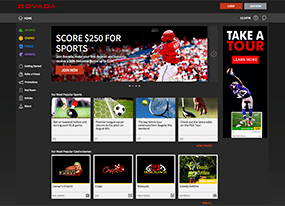
With New Jersey’s fight for sports betting heading to the Supreme Court and many professional sports leagues softening their stance on sports betting (at least in rhetoric) – one has to consider what a regulated legal sports betting climate in the United States would look like.
Today’s Betting Climate
 Sports betting is unregulated in every state aside from Nevada, Delaware, and Montana. Only Nevada offers full-scale sports betting while Delaware and Montana have “sports lotteries.” The clear majority of sports betting is done at offshore sportsbooks and with corner bookies.
Sports betting is unregulated in every state aside from Nevada, Delaware, and Montana. Only Nevada offers full-scale sports betting while Delaware and Montana have “sports lotteries.” The clear majority of sports betting is done at offshore sportsbooks and with corner bookies.
The amount bet in Nevada isn’t even close to what is wagered offshore. Bovada, one of the top sportsbooks for U.S. players, likely takes in 10 times the betting handle that Nevada does. The American Gaming Association regularly estimates that $400 billion or more per year is wagered through unregulated channels.
Nevada Tax Rate
One of the reasons that Nevada sports betting has been able to flourish is the low tax rate. The state takes just 7 percent of the gross win. The Silver State also pays a meager 0.25 percent of betting handle to the federal government.
Offshore betting sites are operating in similar, and likely, better, conditions. They’re based in countries where they pay little or no tax.
Consequences of Higher Tax Rate
The primary reason that sports bettors can bet $110 to win $100 (or better at reduced juice sportsbooks) is because of the low tax rate. With higher tax rates, which are likely to happen under legalized and regulated sports betting – there’s a good chance that -110 to win 100 will be a thing of the past.
It’s also important to remember that most sportsbooks don’t make much off straight wagers. It’s parlays and other exotics that are their real moneymakers. And furthermore, their margins, matter. With legal sports betting – there may be multiple entities that want a cut.
The professional leagues will look to get a piece of the pie. The federal government may decide to institute a higher tax rate on betting handle. States needs their cut, as well. Indian tribes involved in gaming will likely need to be appeased before sports betting starts spreading all over the country.
With so many parties involved – an increase in fees and taxes seems inevitable. Those costs will come down on bettors. The standard -110 on sides and totals may be a thing of the past.
Convenience Still Matters
Even those who are extremely optimistic about regulated sports betting’s potential realize that when more states legalize and regulate sports betting – it’s going to be land-based. Most likely, for quite a while. In my humble opinion, around a decade is a fair over/under.
Even with state regulated options, bettors may opt to still go with the offshore sportsbook or local bookie alternatives. Betting through a phone line and website on your desktop or mobile device is far more convenient than driving to a brick n’ mortar sportsbook.
Legal Sports Betting Seems Inevitable
Even with the concerns surrounding a legal sports betting climate – it seems the tide has turned in the country towards regulation, rather than prohibition. New Jersey isn’t likely to win their case that has now been taken to the SCOTUS, but a defeat there isn’t the end for PAPSA. States across the country have passed or introduce bills that will authorize sports betting regulation if the federal climate changes.
Regulated sports betting is coming, but I am not sure it is a good thing for bettors. The climate is far from perfect now, but Bitcoin has given offshore gambling new life, and I fear that legalization will make it far harder for sports gamblers to turn a profit.




